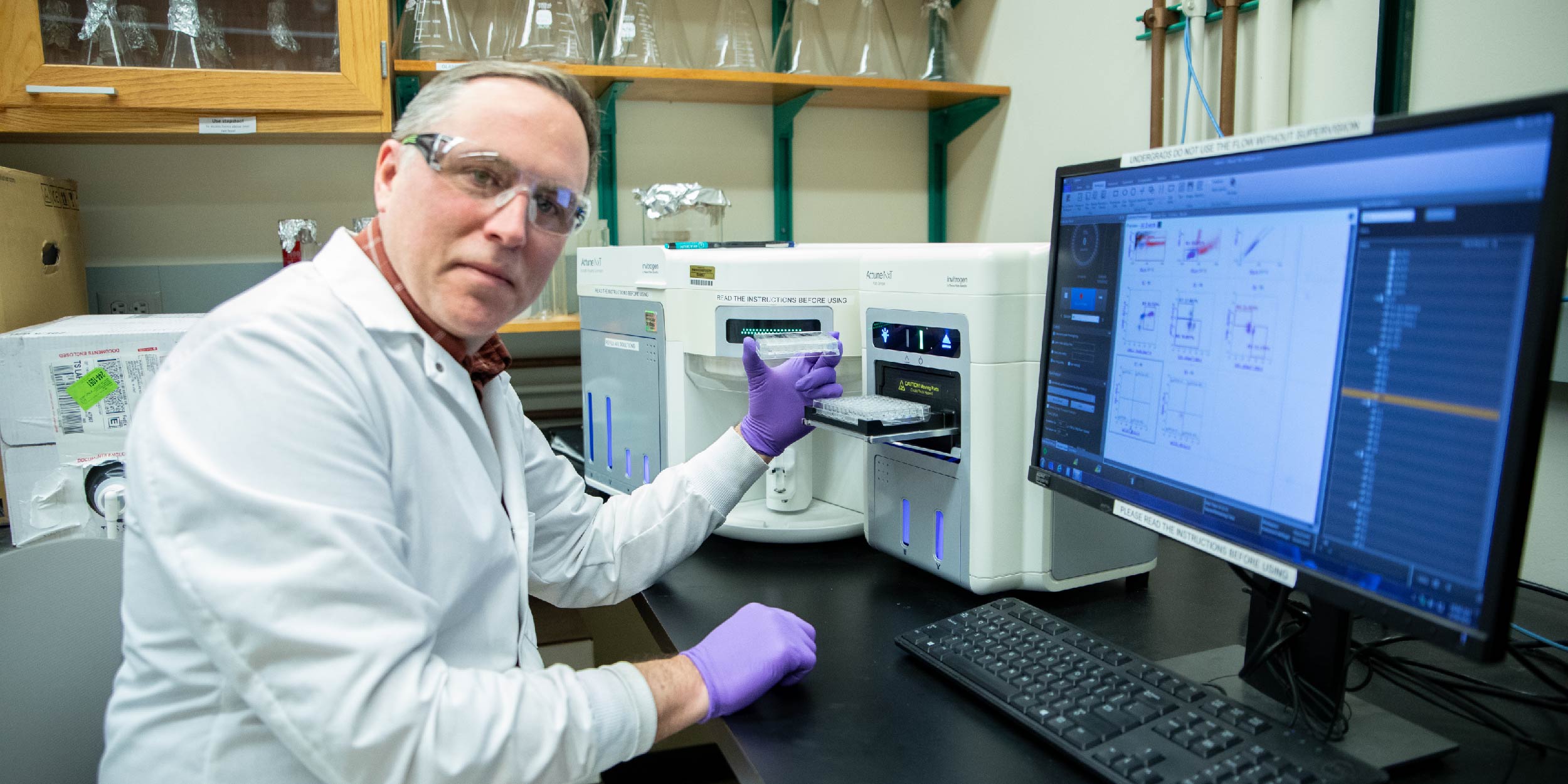Associate Professor Matthew Olson Explores the Role of TOX Transcription Factor in Tumor Immune Response
09-24-2024

Associate Professor of Biological Sciences at Purdue University, Matthew Olson, is leading pioneering research into the complexities of the immune system within cancerous environments. His recent study, published in Frontiers in Immunology, focuses on the TOX transcription factor's involvement in modulating immune cell exhaustion within tumors.
In an interview, Olson shed light on the motivation and findings of this research. He explained that while the immune system primarily defends against infections, it also plays a vital role in protecting against cancers and maintaining overall health.
The study builds on previous research showing that immune cells infiltrating tumors often become exhausted, compromising their ability to combat cancer effectively. Olson's team investigated the TOX transcription factor, which emerged as a key player in this exhaustion process.
"We were intrigued by TOX's high expression in exhausted immune cells within tumors," Olson explained. "We sought to understand its role in dampening immune response within the tumor microenvironment."
Central to their findings is the discovery that TOX regulates the expression of Interleukin-10 (IL-10), an anti-inflammatory molecule crucial for immune modulation. Through experimentation, Olson's team demonstrated that TOX governs the activation and inhibition of IL-10, thereby dampening immune activity within tumors.
"Our research unveiled a network of transcription factors collaborating to regulate IL-10 expression," Olson stated. "This collaboration likely determines the immune cell's functionality within the tumor."
The implications of this discovery are significant. By exploring the molecular mechanisms underpinning immune exhaustion in tumors, Olson's research opens new avenues for therapeutic interventions.
"We envision leveraging these transcription factors and downstream genes for targeted immunotherapies," Olson asserted.
While the potential for therapeutic manipulation of the immune response is promising for improving cancer treatments, Olson acknowledges the challenges in translating these discoveries into clinical applications.
"We recognize there is still much to uncover regarding the precise interplay of transcription factors and their downstream effects," he admitted. "However, our research establishes a robust foundation for future therapeutic strategies."
As Olson continues to explore the complexities of tumor immune response, his work underscores Purdue University's dedication to impactful research. Through collaborative efforts and rigorous investigation, Olson and his team are positioned to contribute significantly to the field of cancer therapy.
In summary, Olson's research marks a significant step forward in our understanding of immune regulation within tumors. By shedding light on the role of the TOX transcription factor in immune exhaustion, his findings lay the groundwork for innovative therapeutic approaches aimed at combating cancer with enhanced precision and efficacy.
About the Department of Biological Sciences at Purdue University
Purdue Biological Sciences is the largest department in the Life Sciences at Purdue University. As part of Purdue One Health, we are dedicated to pioneering scientific discoveries and transformative education at the cutting edge of innovation. From molecules to cells, from tissues to organisms, from populations to ecosystems - we bring together multiple perspectives, integrating across biological scales to advance our understanding of life and tackle the world’s most pressing challenges. Learn more at bio.purdue.edu/.
Writer: Alisha Referda, areferda@purdue.edu
Source: Matthew Olson, olson126@purdue.edu